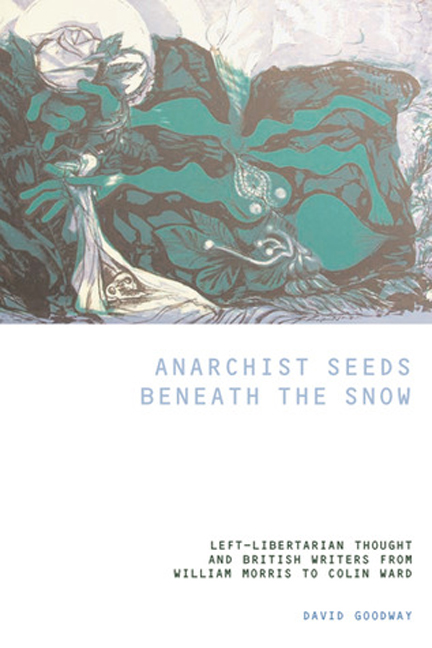 Anarchist Seeds Beneath the Snow
Anarchist Seeds Beneath the Snow Book contents
- Frontmatter
- Contents
- Dedication
- Acknowledgements
- Abbreviations
- 1 Introduction
- 2 Anarchism and libertarian socialism in Britain: William Morris and the background, 1880–1920
- 3 Edward Carpenter
- 4 Oscar Wilde
- 5 John Cowper Powys I: His life-philosophy and individualist anarchism
- 6 The Spanish Revolution and Civil War – and the case of George Orwell
- 7 John Cowper Powys II: The impact of Emma Goldman and Spain
- 8 Herbert Read
- 9 War and pacifism
- 10 Aldous Huxley
- 11 Alex Comfort
- 12 Nuclear disarmament, the New Left – and the case of E.P. Thompson
- 13 Christopher Pallis
- 14 Colin Ward
- 15 Conclusion
- Bibliography
- Index
8 - Herbert Read
- Frontmatter
- Contents
- Dedication
- Acknowledgements
- Abbreviations
- 1 Introduction
- 2 Anarchism and libertarian socialism in Britain: William Morris and the background, 1880–1920
- 3 Edward Carpenter
- 4 Oscar Wilde
- 5 John Cowper Powys I: His life-philosophy and individualist anarchism
- 6 The Spanish Revolution and Civil War – and the case of George Orwell
- 7 John Cowper Powys II: The impact of Emma Goldman and Spain
- 8 Herbert Read
- 9 War and pacifism
- 10 Aldous Huxley
- 11 Alex Comfort
- 12 Nuclear disarmament, the New Left – and the case of E.P. Thompson
- 13 Christopher Pallis
- 14 Colin Ward
- 15 Conclusion
- Bibliography
- Index
Summary
John Cowper Powys was a prodigious original, as idiosyncratic in his politics – and his expression of them – as in everything else. Herbert Read was his opposite, admiring the works of Flaubert and James and the novella, certainly not the big, baggy monsters that Powys loved and produced, and reticent and unobtrusive other than in his roles as the most prominent British advocate for modern art as well as the best-known anarchist of his day.
It was the impact of the Spanish Revolution that caused Read to declare for anarchism in 1937 – at first extremely mutedly in the Left Review survey, Authors Take Sides on the Spanish War, and then forthrightly in ‘The Necessity of Anarchism’, a three-part article in the Adelphi. This latter was included the following year in a substantial manifesto, Poetry and Anarchism:
To declare for a doctrine so remote as anarchism at this stage of history will be regarded by some critics as a sign of intellectual bankruptcy; by others as a sort of treason, a desertion of the democratic front at the most acute moment of its crisis; by still others as merely poetic nonsense. For myself it is not only a return to Proudhon, Tolstoy, and Kropotkin, who were the predilections of my youth, but a mature realization of their essential rightness, and a realization, moreover, of the necessity, or the probity, of an intellectual confining himself to essentials.
I am thus open to a charge of having wavered in my allegiance to the truth. In extenuation I can only plead that if from time to time I have temporized with other measures of political action – and I have never been an active politician, merely a sympathizing intellectual – it is because I have believed that such measures were part way to the final goal, and the only immediately practical measures. From 1917 onwards and for as long as I could preserve the illusion, communism as established in Russia seemed to promise the social liberty of my ideals. So long as Lenin and Stalin promised a definitive ‘withering away of the State’ I was prepared to stifle my doubts and prolong my faith.
- Type
- Chapter
- Information
- Anarchist Seeds Beneath the SnowLeft-Libertarian Thought and British Writers from William Morris to Colin Ward, pp. 175 - 201Publisher: Liverpool University PressPrint publication year: 2006


